Kirk Franklin explains his frustration with and decision to boycott the Dove Awards after his acceptance speech was edited to omit his portion mentioning racial injustice for the second time. (1/2) #FinalSoundcheck
( : @kirkfranklin)
: @kirkfranklin)
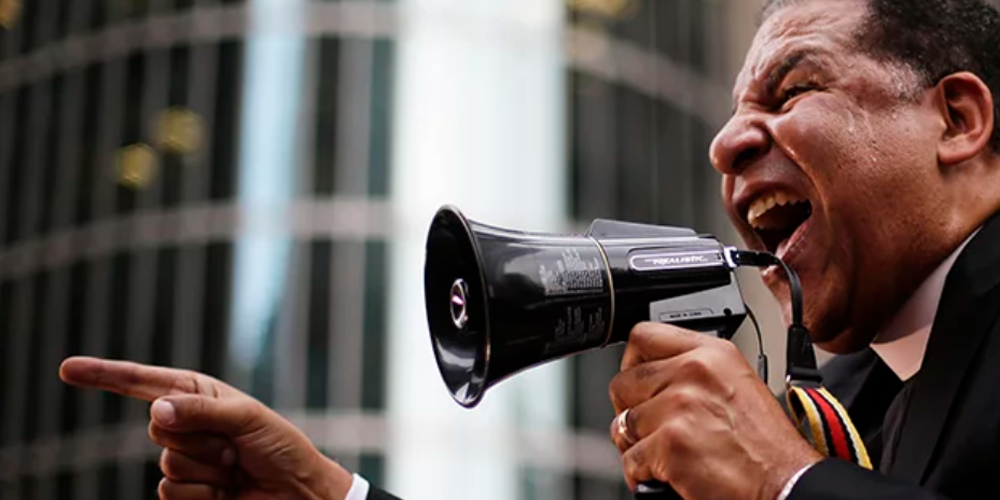
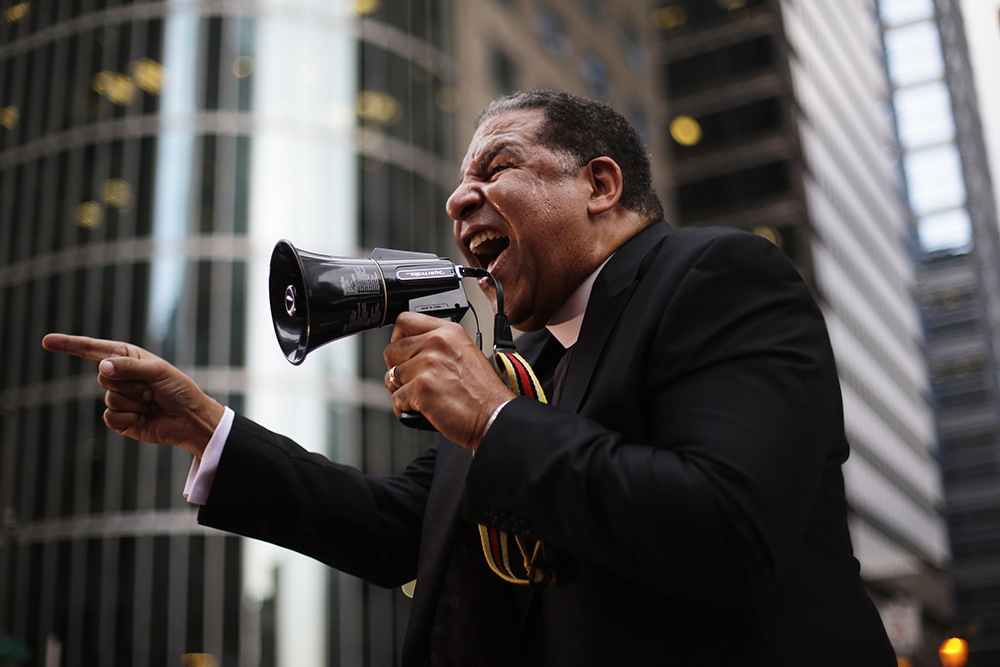
The Rev. Alvin Herring speaks during a demonstration calling for increased funding for public schools, Thursday, Aug. 22, 2013, in Philadelphia. (AP Photo/Matt Rourke)
For the Rev. Alvin Herring, executive director of the congregation-based organizing network Faith in Action, wearing a clerical collar is about more than appearances. It prepares him for the task of making social change.
“I consider this my uniform,” Herring said, gesturing toward his white-collar as he addressed the crowd at the Vote Common Good summit in Des Moines, Iowa, earlier this month. “When I’m ready to go to work or go to war, I put this on.”
Specifically, Herring, a pastor from California, says he and his organization are gearing up for work and war — metaphorically speaking — ahead of the 2020 election. Through partnerships with groups such as VCG and a series of organizing initiatives, Herring and Faith in Action — one of the largest faith-based liberal-leaning groups in the country — are hoping to prove that people of faith can make an impact come Election Day.
Or, as Herring later told Religion News Service: “The progressive community has to get it straight: Faith matters.”
Faith in Action, previously known as PICO National Network, is hardly new to the art of national organizing. The multifaith, multiracial group boasts 45 member organizations spread across 200 cities and towns in 25 states. Each organization claims the membership of multiple worship communities of various sizes dedicated to advocating for certain policies and legislation.
The group tries to avoid political labels, but Herring acknowledged in an interview with RNS that the positions his group advocates for often lean away from the current Republican Party.
“Our everyday work is about fighting for immigrant justice,” he said. “Our everyday work is about returning to citizens the right to vote and the right of personhood. … Our everyday work is with young people who are saddled under the significant and heavy weight of education debt and a lack of economic mobility.”
Faith in Action has mustered robust campaigns in the past. Recent efforts include rallying faith groups behind prison reform in California and equitable funding for public education in Pennsylvania. They often tie their campaigns to bigger elections: According to Herring, Faith in Action teams contacted roughly 800,000 voters ahead of the 2018 midterm elections.
But this year they’re hoping to ramp up efforts to maximize their impact. For example, Faith in Action is now pushing to have 1 million conversations with voters before November.
The group has also forged partnerships with national-level organizations that Herring described as being part of an “ecosystem” of change. This includes the W.K. Kellogg Foundation — where Herring previously worked as the director for racial equity and community engagement — which in turn partners with the NAACP, Urban League, UnidosUS, National Congress of American Indians, Demos, Advancement Project, Race Forward and the Asian and Pacific Islander American Health Forum.
A Faith in Action spokesperson described the partnership as designed to “promote racial equity, advance racial healing and ensure that all children, families and communities have genuine opportunities to reach their full potential.”
Faith in Action also has a separate relationship with VCG, a new group led by progressive evangelical Christians that helps train Democratic candidates to engage with faith and offers outreach to liberal-leaning religious voters. The two organizations have entered into a formal memorandum of understanding, allowing VCG to benefit from Faith in Action’s network of worship communities.
VCG executive director Doug Pagitt told the crowd in Des Moines that Faith in Action will bolster his organization’s ongoing bus tour across the country.
“Oftentimes, when we go into a state or a city, we will tie into that (Faith in Action) network,” Pagitt said. “It’s a great gift.”
But Herring argued the real goal is to effect local politics. Instead of focusing solely on the presidential election, he said, Faith in Action plans to target sheriff’s races across the country — particularly in the South — because the position is “one of the most powerful” when it comes to impacting the lives of marginalized communities. They hope their member communities will push for candidates who will institute more liberal approaches to policing, incarceration and gun violence.
Faith in Action is also launching a “Setting the Captives Free” initiative — a reference to the Book of Exodus — that strives to push back against policies such as voter ID laws that Herring argued disproportionately disenfranchise people of color.
Organizers plan to discuss these and other issues at Faith in Action’s National Faith Forum Feb. 12-14. According to the event flier, leaders will gather in Las Vegas to discuss strategy, unveil a “People’s Platform” and dialogue with 2020 candidates and their policy staffs.
It’s unclear how well Faith in Action’s approach will work. Despite its size, the group’s hyperlocalized structure can make progress difficult to track, and Herring did not offer many specifics as to how the campaigns will be implemented at the local level.
But he said he is confident the efforts will have some impact on the lives of everyday Americans, a shift he hopes will send a message to more secular-minded liberals.
“I would say one other thing to the progressive community: It will have to come off the fence,” he told RNS. “It can’t have a deep aversion for faith on the right and a lack of commitment for faith in other places. It’s not enough to decry those who stand with an administration that is literally trying to suck the lives out of everyday working people, and yet say nothing about those hardworking men and women of faith who are every day in the streets, every day in the soup kitchens, every day in clothes pantries, every day in the voting booth — voting their faith principles and their faith guidelines.”
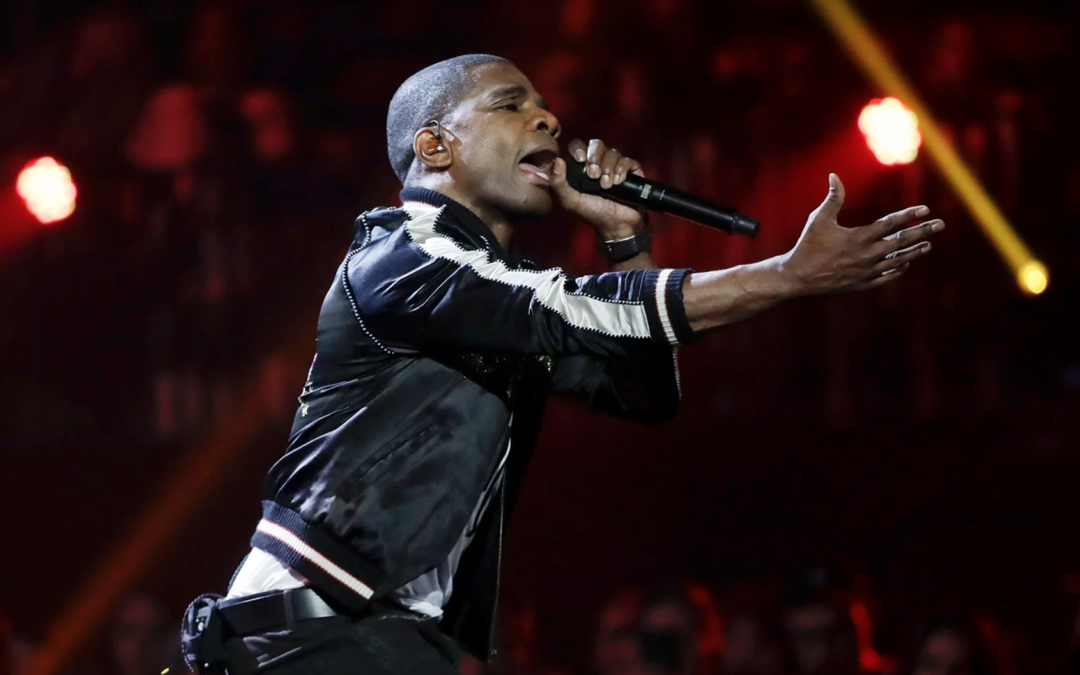
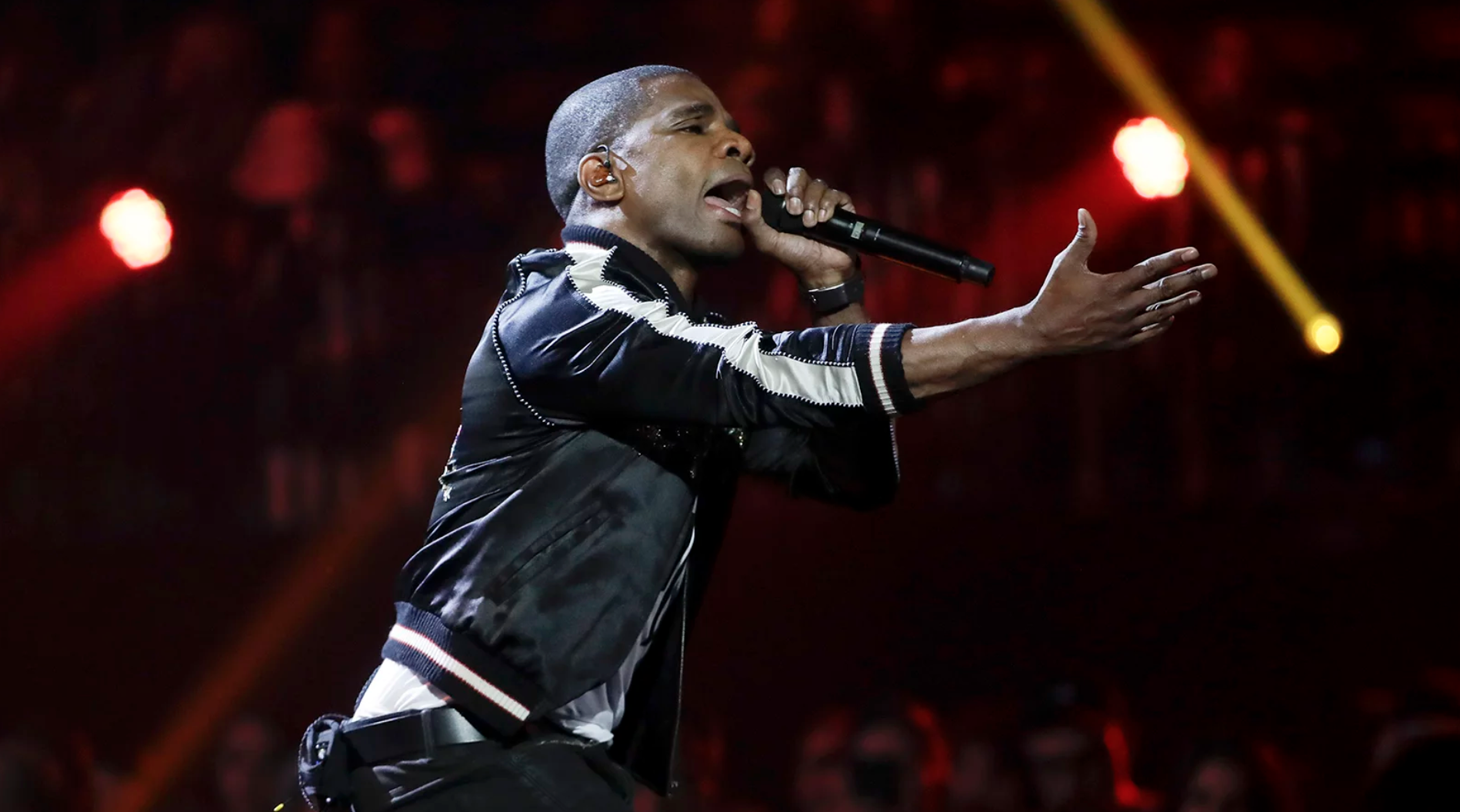
Kirk Franklin performs during the Dove Awards on Tuesday, Oct. 15, 2019, in Nashville, Tenn. (AP Photo/Mark Humphrey)
Prominent gospel musician Kirk Franklin says he will boycott the Christian music Dove Awards, citing frustrations with the Gospel Music Association and Trinity Broadcasting Network for editing his past acceptance speeches to remove mentions of race and police shootings.
Franklin made the announcement on Monday (Oct. 28) in a pair of videos posted to Twitter. Speaking directly into the camera, he explained that after winning a Dove Award — which is affiliated with the GMA — in 2016, he called for racial healing during his acceptance speech, noting the shooting of both police officers and black men in general.
“When we don’t say something, we’re saying something,” Franklin said during the speech, after which he received a standing ovation and led the assembly in prayer.
In his Twitter videos, Franklin said that when the speech later aired on TBN, that section of his speech was edited out of the broadcast.
“I made my disappointment and frustration known to the Dove Awards committee and to the Trinity Broadcasting Network,” he said. “I never heard from TBN, and the Dove Awards committee promised to rectify the mistake so that it wouldn’t happen again.”
Franklin won another Dove award in 2019, when he again made mention of police shootings during his acceptance speech — this time noting the death of 28-year-old Atatiana Jefferson, who was shot by a white police officer in her own home in October, according to published reports.
During the awards ceremony held Oct. 15 — which marked the 50th anniversary of the Christian music awards — Franklin asked those in the audience and those watching to pray for both Jefferson’s family and the family of the police officer. Those remarks did not appear when the award show was broadcast on TBN a few days later.
“Again, that part of my speech was edited out,” he said.
Kirk Franklin explains his frustration with and decision to boycott the Dove Awards after his acceptance speech was edited to omit his portion mentioning racial injustice for the second time. (1/2) #FinalSoundcheck
(
: @kirkfranklin)
Franklin said that after meeting representatives from the Dove Awards committee and TBN, he has decided to boycott the awards.
“I have made the decision after prayer, consultation with my team and my pastor Dr. Tony Evans, to not attend any events affiliated with or for the Dove Awards, Gospel Music Association, or TBN until tangible plans are put in place to protect and champion diversity, especially where people of color have contributed their gifts, talents, and finances to help build the viability of these institutions.”
Franklin stressed that his ultimate goal is reconciliation, but also accountability.
“Not only did they edit my speech, they edited the African American experience,” he said.
GMA President Jackie Patillo issued a statement in response, stating that “we had to significantly edit the Dove telecast to 2 hours” and that “many were disappointed because there were so many memorable moments and noteworthy portions of acceptance speeches absent.”
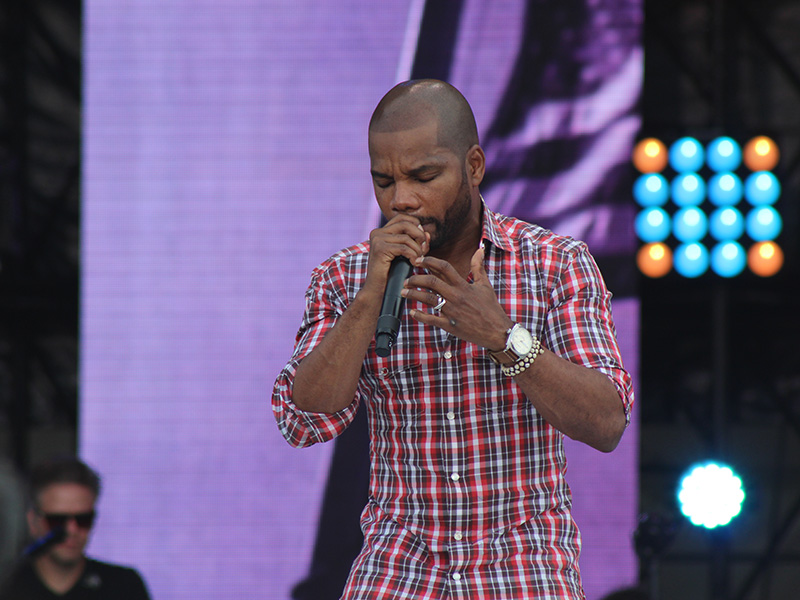
Gospel artist Kirk Franklin prays during “Together 2016,” an evangelical Christian prayer rally in Washington, D.C., on July 16, 2016. RNS photo by Adelle M. Banks
Patillo also apologized, saying the GMA “would like to publicly acknowledge that we are deeply apologetic for the missteps that happened relating to the editing of Kirk Franklin’s Dove Awards acceptance speech.”
She added: “We accept the responsibility of our error. Although completely unintentional, we understand it caused great harm and deeply wounded many in the African American and Gospel community.”
Patillo said TBN has made an unedited version of the ceremony available through Video On Demand and that GMA plans to announce new “initiatives” developed after meeting with Franklin and his team.